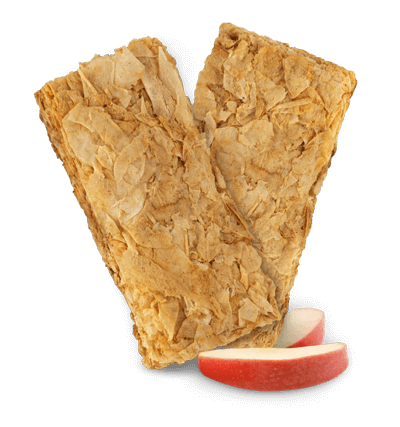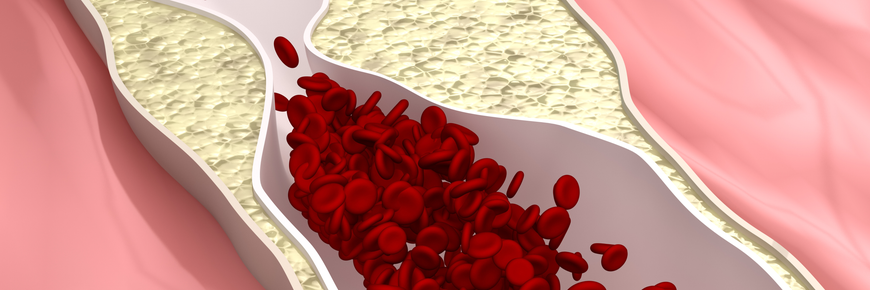- Home
- Weet-Bix™ Cholesterol Lowering
_(1).png?width=1181&height=629&format=png&quality=95)
Weet-Bix™ Cholesterol Lowering
The following information is intended for Health Care Professionals
- Key benefits of Weet-Bix™ Cholesterol Lowering
- For product information click here
- View and download our free factsheet for Health Professionals here
- Check out these delicious, cholesterol lowering recipes
- Statistics
- Evidence
- Recommendations: New Zealand Nutrition Foundation and the National Heart Foundation of New Zealand
- International plant sterol dietary recommendations
- Approval by Food Standards Australia New Zealand (FSANZ)
- References
Weet-Bix™ Cholesterol Lowering key benefit claims—It’s effective, it’s easy and it’s enjoyable!
It’s Effective: Weet-Bix™ Cholesterol Lowering is effective—the 2 grams of plant sterols in a daily serve of Weet-Bix™ Cholesterol Lowering is clinically proven to actively lower LDL cholesterol levels by up to 9% in 4 weeks as part of a healthy diet low in saturated fat.
Research shows, based on 40 clinical studies published in peer reviewed journals, that consuming 2 grams of plant sterols daily lowers LDL cholesterol by up to 9% [1]. 2 grams of plant sterols in Weet-Bix™ Cholesterol Lowering, consumed daily has been clinically verified, is aligned to the total body of evidence and lowered LDL cholesterol by up to 9% in 4 weeks [1, 2].

Over the course of my career we have learnt a lot about heart health and the important role that diet and lifestyle plays. I conducted a clinical trial in partnership with Sanitarium Health and Wellbeing™ and their breakfast cereal product Weet-Bix ™ Cholesterol Lowering.
It’s Easy: Weet-Bix™ Cholesterol Lowering is easy—eating just two Weet-Bix™ Cholesterol Lowering daily, provides the optimal amount of 2 grams of plant sterols in one serve.

It’s Enjoyable: Weet-Bix™ Cholesterol Lowering is enjoyable with the same great taste as the regular Weet-Bix™ New Zealanders know and love.
Dr. Peter Clifton is the Professor of Nutrition at the University of South Australia and a general physician. He has over 30 years' experience researching the prevention and treatment of cardiovascular conditions, type 2 diabetes, obesity and other metabolic conditions.
"My research team and I conducted a clinical trial in 2016. The trial included 46 Australian adults with high cholesterol (>5.5mmol/L), that we divided into two randomly assigned groups. One group ate 2 Weet-Bix™ Cholesterol Lowering a day for 4 weeks. The other group ate 2 regular Weet-Bix™ as the placebo control group for the same time period. We then swapped the treatments over for the next 4 weeks.”
The randomised clinical study on Weet-Bix™ Cholesterol Lowering, conducted by the University of South Australia with lead researcher Professor Peter Clifton, concluded that 2 grams of plant sterols from 2 Weet-Bix™ (one serve) per day significantly lowers LDL cholesterol.
The LDL cholesterol lowering efficacy reported in the Weet-Bix™ Cholesterol Lowering clinical study was aligned with (not significantly different from) the LDL cholesterol lowering efficacy of the most up-to-date analysis of all available clinical studies of products using a similar dose of plant sterols [delivering 2-2.5g/d (average 2.1g/d) of plant sterols] [1].
View the peer-reviewed clinical trial in the Journal of Foods - "Cholesterol-Lowering Effects of Plant Sterols in One Serve of Wholegrain Wheat Breakfast Cereal Biscuits—a Randomised Crossover Clinical Trial".
Compliance with 2 Weet-Bix™ per day was excellent among participants of the Weet-Bix™ Cholesterol Lowering clinical study. This supports 2 Weet-Bix™ Cholesterol Lowering daily as being an easy dietary change to implement and comply with. And we've made it even easier with these delicious serving suggestions.
In the Weet-Bix™ Cholesterol Lowering clinical study, simply eating 2 Weet-Bix™ (one serve) per day was found to improve measures of diet quality including wholegrain (increased by 33%), thiamin (37%), riboflavin (28%), niacin (13%) and iron (27%). Fibre, fat, protein, carbohydrate and energy did not change. Close to half (47%) of the participants could not identify the product containing plant sterol. For the nutritional information and frequently asked questions on Weet-Bix™ Cholesterol Lowering visit the product page.
Heart health statistics
Heart health is a serious issue for thousands of New Zealanders [3]. Approximately 1 in 4 New Zealand adults have elevated cholesterol [4] [5].
Heart health evidence: the role of diet and lifestyle on your heart
A number of large, long-term studies clearly show the important role that elevated cholesterol plays in heart health [6-9]. Lowering cholesterol is recognised by leading health authorities as an important contributor to heart health [10]. Adopting a diet every day that emphasises a variety of wholegrain cereals and breads, vegetables, fruits, legumes, including soy, nuts and seeds, soluble fibre and healthy fats are important to help manage your heart health. Other healthy lifestyle factors; such as not smoking, maintaining an active lifestyle and a healthy weight, are also important to help manage the health of your heart[10].
The most effective cholesterol lowering dietary strategies are replacing saturated and trans fats with unsaturated fats, and daily intake of plant sterols, as part of a healthy diet [11, 12]. These two strategies account for the majority of the cholesterol lowering effect that is achievable through diet. A daily intake of 2 grams of plant sterols from plant sterol enriched foods, as part of a healthy diet and lifestyle, has proven to lower LDL cholesterol by up to 9% [1].
Replacing saturated and trans fats with unsaturated fats has the potential to further lower LDL cholesterol by around 6-8% [13]. The effects of plant sterols from enriched foods are additive to those of a healthy diet. So in combination, plant sterols and choosing healthy fats in place of saturated fat have the potential to lower LDL cholesterol by about 15% [10, 11].
With even further benefits to cholesterol lowering by adopting healthy plant-based foods. Sanitarium promotes a diet rich in whole plant-based foods for optimising your health.
As the processes that underlie your heart’s health, such as the narrowing of the blood vessels, can start much earlier in life than people may think, it’s important to look after your heart health from an early age by achieving and maintaining the desirable cholesterol levels. And it’s a similar story for other lifestyle factors for heart health like high blood pressure, smoking, overweight, a sedentary lifestyle and poor diet—the earlier you take action the better the long term outcomes. Regular cholesterol checks should therefore be part of our health routine. Take a positive step and discuss with your General Practitioner today. For more specific dietary advice on cholesterol management, speak to a registered dietitian.
New Zealand Nutrition Foundation and the National Heart Foundation of New Zealand
The New Zealand Nutrition Foundation suggests that people with elevated LDL cholesterol eat 2–3 grams of plant sterols each day from plant sterol enriched foods, as a part of a healthy diet and active lifestyle.For more diet and lifestyle information on how to help manage your heart health visit the Heart Foundation website or contact the Heart Foundation Helpline on 0800 863 375 for free information and support from qualified health professionals.
International plant sterol dietary recommendations
Lowering cholesterol is recognised by leading health authorities as an important contributor to heart health and include plant sterols in their dietary recommendations for cholesterol management. Evidence-based dietary recommendations for the management of cholesterol and support of heart health have been developed by several international authorities and many of these now include plant sterol dietary recommendations. Some include the European Society of Cardiology, European Atherosclerosis Society National Heart Foundation of New Zealand, American Heart Association, Health Canada, Dutch Heart Foundation, British Heart Foundation and Nutrition Foundation of Italy.
The cholesterol lowering benefits of plant sterols are additive to statins therapy, so the Australian Heart Foundation also recommends that people taking statins can benefit from eating plant sterol enriched foods in addition to statin therapy [14].
People are encouraged to have their cholesterol tested by their General Practitioner, to take a positive step in helping manage your heart health. For more specific dietary advice on cholesterol management, speak to a registered dietitian.
For more information on the role of wholegrains in overall health and their specific role in heart health visit Grains & Legumes Nutrition Council.
Food Standards Australia New Zealand (FSANZ) approved an increased level of plant sterols in breakfast cereals
‘FSANZ Code change now signed off by ministers for increase in plant sterols in breakfast cereals’
Sanitarium’s Weet-Bix™ Cholesterol Lowering breakfast cereal, demonstrates the Company’s commitment to investing in innovative food solutions to help New Zealanders to experience better health. In another first, Sanitarium achieved an update in 2017 to the Food Standards Code for Australia & New Zealand (FSANZ) which now allows up to 2 grams of plant sterols to be included in a serve of breakfast cereal.
Sanitarium’s Weet-Bix™ Cholesterol Lowering is New Zealand’s first breakfast cereal proven to significantly lower cholesterol in a single serve. At the time of launch in 2017, Weet-Bix™ Cholesterol Lowering was the only breakfast cereal and food on the market to contain 2 grams of plant sterols in a serve with exclusive permission in the Food Standards Code for Australia and New Zealand for up to 1 year.
After an extensive review and public consultation, FSANZ confirmed the safety of plant sterols and recognised the potential public health benefit of offering consumers an easy and effective way to reduce cholesterol via 2 grams plant sterols per serving of breakfast cereal. This has given us the ability to deliver an effective dose of plant sterols per serve and create Weet-Bix™ Cholesterol Lowering.
Last Updated: July 2023
†Two Weet-Bix™ Cholesterol Lowering daily provides 2g of plant sterols, which are clinically proven to lower LDL cholesterol by up to 9% in 4 weeks as part of a healthy diet low in saturated fat.
Weet-Bix™ Cholesterol Lowering may not be suitable for children under 5 years and pregnant and lactating women.
REFERENCES
- Ras, R.T., J.M. Geleijnse, and E.A. Trautwein, LDL-cholesterol-lowering effect of plant sterols and stanols across different dose ranges: a meta-analysis of randomised controlled studies. Br J Nutr, 2014. 112(2): p. 214-9. https://www.ncbi.nlm.nih.gov/pmc/articles/PMC4071994/
- Clifton, P.; Keogh, J. Cholesterol-Lowering Effects of Plant Sterols in One Serve of Wholegrain Wheat Breakfast Cereal Biscuits—A Randomised Crossover Clinical Trial. Foods 2018, 7, 39. https://doi.org/10.3390/foods7030039
- Ministry of Health, NZ Health Survey: Annual update of key results 2014-2015. 2015, Wellington: Ministry of Health.
- Ministry of Health, Annual Update of Key Results 2015/16: New Zealand Health Survey, Ministry of Health, Editor. 2016: Welllington.
- Ministry of Health, Unpublished data email correspondence with: Ministry of Health 16 Jan 2017, Editor. 2016: Wellington.
- Huxley, R., S. Lewington, and R. Clarke, Cholesterol, coronary heart disease and stroke: a review of published evidence from observational studies and randomized controlled trials. Semin Vasc Med, 2002. 2(3): p. 315-23.7.
- Catapano, A.L., et al., 2016 ESC/EAS Guidelines for the Management of Dyslipidaemias. European Heart Journal, 2016. 37: p. 2999-3058.
- Cholesterol Treatment Trialists, C., et al., Efficacy and safety of LDL-lowering therapy among men and women: meta-analysis of individual data from 174,000 participants in 27 randomised trials. Lancet, 2015. 385(9976): p. 1397-405.
- Cholesterol Treatment Trialists, C., et al., The effects of lowering LDL cholesterol with statin therapy in people at low risk of vascular disease: meta-analysis of individual data from 27 randomised trials. Lancet, 2012. 380(9841): p. 581-90.
- National Vascular Disease Prevention Alliance. Guidelines for the management of absolute cardiovascular disease risk. 2012 [cited 2023 15 May]; Available from: https://www.heartfoundation.org.au/getmedia/4342a70f-4487-496e-bbb0-dae33a47fcb2/Absolute-CVD-Risk-Full-Guidelines_2.pdf
- Clifton, P., et al., Dietary intervention to lower serum cholesterol. Aust Fam Physician, 2009. 38(6): p. 424-9.
- Clifton, P., Lowering cholesterol - a review on the role of plant sterols. Aust Fam Physician, 2009. 38(4): p. 218-21.
- Mensink, R.P., et al., Effects of dietary fatty acids and carbohydrates on the ratio of serum total to HDL cholesterol and on serum lipids and apolipoproteins: a meta-analysis of 60 controlled trials. Am J Clin Nutr, 2003. 77(5): p. 1146-55.
- Heart Foundation. (2017). Position Statement: Phytosterol/ stanol enriched foods & Heart Health Foods. National Heart Foundation of Australia. [cited 2023 15 May]; Available from 190729_Nutrition_Position_Statement_-_Phyto_Sterol.pdf (heartfoundation.org.au)




